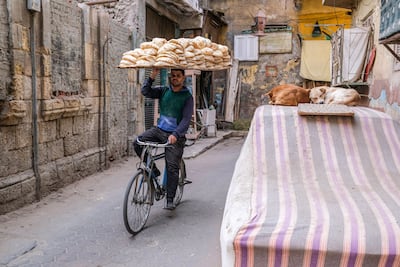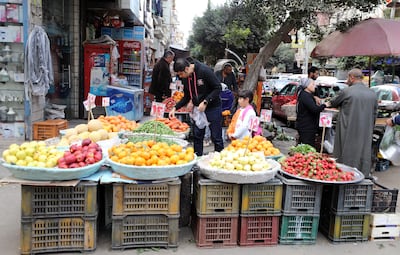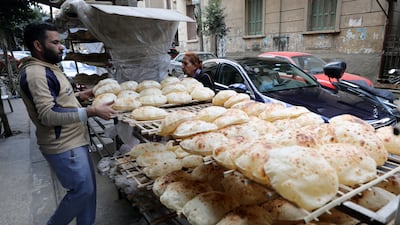Battling rising inflation, Egypt on Monday said it would start selling discounted bread to people outside its food subsidy programme.
Supply Minister Ali Moselhy said a traditional flat loaf weighing 90 grams would be sold at cost price through prepaid cards. The exact price of the loaf will be later decided but it will be less than 1 Egyptian pound ($0.03).
The programme will undergo an unspecified trial period starting later this week, he said.
The local variety of bread known as “balady” is a staple for the vast majority of Egypt’s 104 million people. More than 70 million are entitled to state-subsidised bread sold at five piasters a loaf.
Bread has traditionally been viewed in Egypt as a politically sensitive commodity, with successive governments deciding to leave their low price unchanged rather than run the risk of street unrest.
An attempt to remove bread subsidies in 1977 sparked deadly street protests and forced the government at the time to rescind its decision.

Egyptians not covered by the food cards buy their bread on the free market, where prices range between 0.50 and one pound for a larger and better-quality balady loaf.
"The point is to make this important commodity available without any exaggeration in profits by commercial bakeries," said the Supply Minister. The decision to sell bread at a discount could increase the amount sold by the government by up to 10 per cent, he said.
Egypt has at times been the world’s largest wheat importer, buying more than 10 million tonnes on the world market every year. Its wheat import bill has significantly risen since the war between Russia and Ukraine — Egypt’s chief wheat suppliers — broke out nearly a year ago.
On Saturday, Prime Minister Mostafa Madbouly told reporters the government was producing 1 billion loaves of the 5-piaster variety each year. The actual cost of that subsidised loaf stood at 0.65 pounds two years ago.
The cost rose to 0.80 pounds after the outbreak of the Russia-Ukraine war and to 0.90 pounds in the past two weeks following a rapid slide in the value of the Egyptian pound, now traded at nearly 30 pounds to the US dollar compared to 16 only a year ago.

“That last 10-piaster rise in the cost of the loaf is costing 10 billion pounds [nearly $340 million],” Mr Madbouly said.
“The Egyptian government is continuing to subsidise basic commodities to the maximum of its abilities. What the state shoulders exceeds even the resources available to developed nations.”
Inflation in Egypt rose to 21.3 per cent last month, its highest in five years.
Mr Moselhy said the government wanted to procure about 4 million tonnes of wheat from local growers when the harvest begins in April.
Mr Madbouly said the government planned to offer incentives to wheat farmers this year but did not give details.


